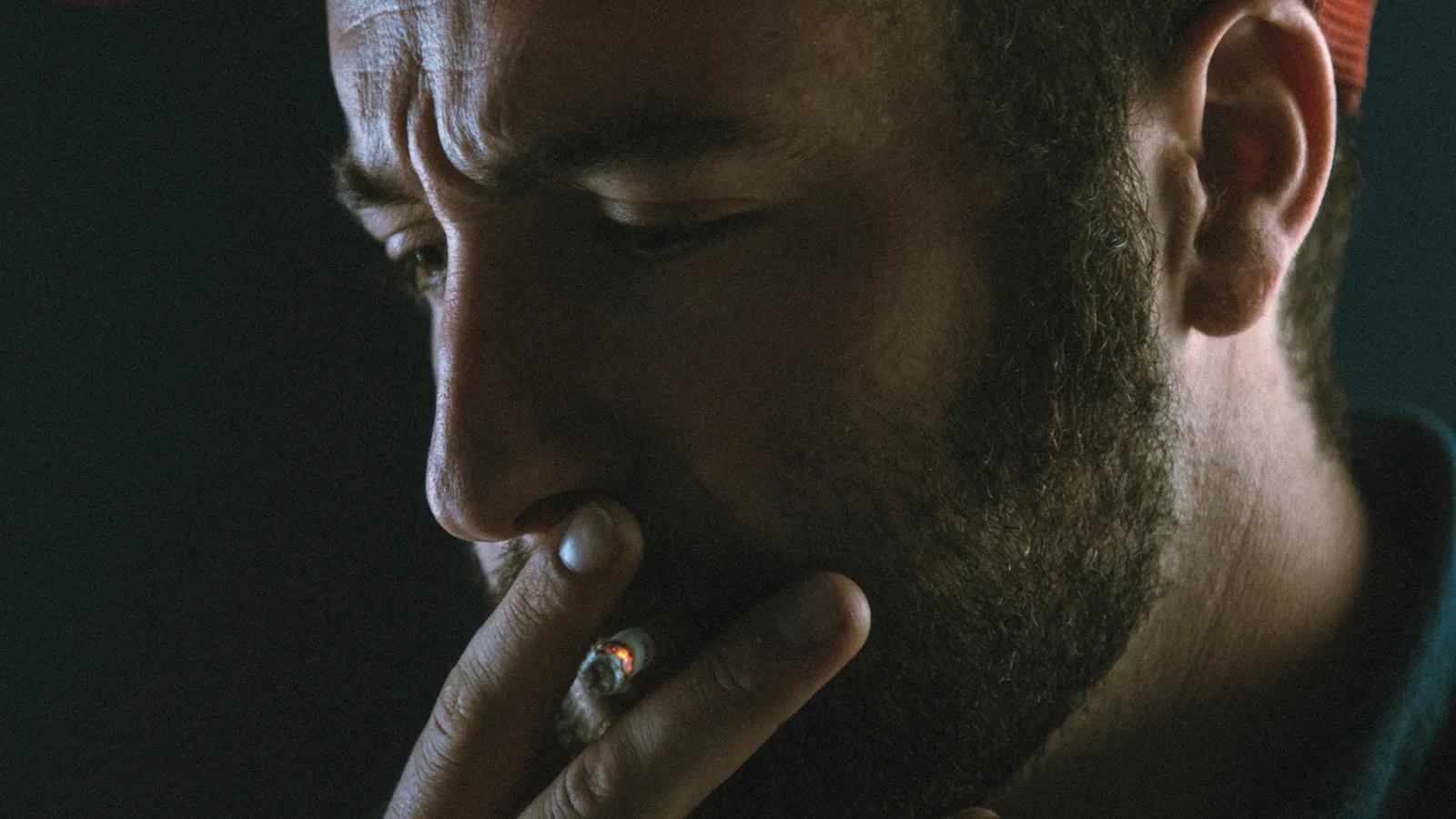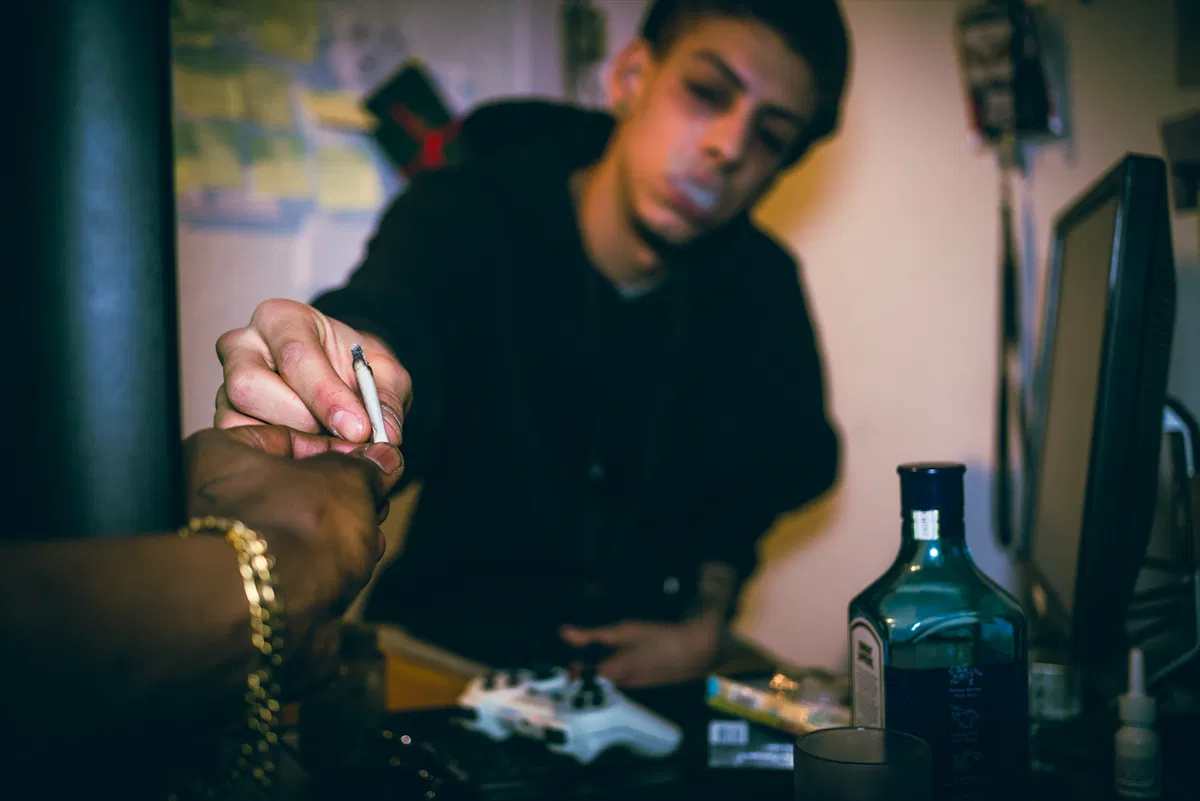Copyright Rolling Stone

C arol Bell wasn’t going to miss watching her son Luke open for Dwight Yoakam, even if it meant leaving her sick husband at home and flying across the country from Wyoming to Charlottesville, Virginia. Though Luke had been getting some traction around Nashville for the album he self-released in 2014, it was when he hit the road with the Bakersfield legend that Carol began to recognize just how deeply her son’s breed of traditional-minded but deeply idiosyncratic country and roots music was connecting with listeners. The music career Luke Bell had dreamed about, and chased from the family ranch through Austin, New Orleans, and Nashville, was starting to feel real. “I always told Luke, ‘When you open for Dwight Yoakam, I’ll know you’ve arrived,'” Carol says. She’s sitting in a coffee shop on a September morning in Nashville, the night after a boisterous and emotional tribute to her son during the city’s annual AmericanaFest. The Yoakam trip, however, was in April 2015, and Carol hadn’t packed for the cold weather — coming from Wyoming, she’d figured it would be in the warmer throes of early spring. Instead, she found herself layered in almost every piece of clothing she brought in her suitcase, nestled among the crowd waiting for Luke to take the stage. Luke, however, was looking dapper: At a suit shop outside of town, he’d spent the bulk of his measly performance fee on western jackets for him and the band, mostly so he could impress the stylish Yoakam. Topped off with a cowboy hat, he played his songs along with a new, chugging country swinger called “The King Is Back.” Carol remembers hearing the audience whisper, “Who is this guy?” By the end of his performance, “Everyone in the crowd was on their feet,” says Carol, who watched them float in like the tide from the back of the arena. “It was one of the happiest nights of my life.” Everything changed when Carol returned home. Her husband David had been diagnosed with pancreatic cancer that was quickly worsening. Luke’s father hoped to be well enough for the Yoakam show, but a doctor had warned that he was too sick to travel. By the next month, he was in hospice. Two weeks later, he was gone. Luke had flown out to Los Angeles the morning of his dad’s death for a work meeting, and didn’t get to say a final goodbye: David’s condition deteriorated so quickly that the family assumed he had more time, and even David himself didn’t want to accept the severity of his diagnosis. His family adored him. Luke worshipped him. Editor’s picks “I don’t think anyone prepares you for the way that loss wrecks your world,” Carol says. “And as grievers, we’re perpetuating the myth by trying to be heroic, and pretending we are doing so much better than we are. Even Luke was pretending to be fine.” On the outside, life for Luke Bell then looked more than fine. He’d go on to release an acclaimed self-titled album in 2016, backed by the label Thirty Tigers and a publishing contract, and he had dates booked with Yoakam, Hank Williams Jr., and Willie Nelson. He was pitching songs to country stars and playing the Stagecoach festival, and he was a beloved, vital center of the creative community that existed outside of the confines of Music Row and country radio. But Luke was suffering. Suffering from the pain of losing his dad so quickly and tragically, and suffering as his mental health declined just as rapidly — He would later be diagnosed with bipolar disorder. In the last years of his life, he spent time unhoused, sleeping in cars or at camps, and riding trains. When he was open to getting help, he was never the right “fit” for a treatment center. Some didn’t take addicts or self-harmers, as if those things didn’t exist part and parcel with mental illness. He was encouraged to stay on the road even as his health was worsening, in an industry that prizes the idea of the “tortured” artist and deprives them of even the most basic resources, all in a country that often refuses to properly treat or even acknowledge mental illness as a valid disease. Related Content Bell died before “The King Is Back” could ever be released. He was found dead, at 32, in a Tucson, Arizona, parking lot from a fentanyl overdose on Aug. 26, 2022, after going missing for nearly a week. The news became a story of national fascination. Luke always had grandiose plans for himself, but he deserved to be famous for his songs — not infamous for how his life ended. Still, despite the trauma-thirsty embrace of Luke’s story from the media, the music lingered. Luke Bell quickly rose to Number One on iTunes’ country chart, and his top song on Spotify, “Where Ya Been?,” now has close to six million streams. Luke’s tragic story may have grabbed people in, but his music kept them there. This Friday, The King Is Back, a 28-song collection of Luke’s existing recordings, will be released, compiled by Carol and Luke’s sister, Jane. It shows an incredibly gifted songwriter and vocalist with an empathetic touch, who often recognized the unease in his brain and used music to articulate it. And the album exists with a bigger purpose: The King Is Back will benefit the Luke Bell Memorial Affordable Counseling Program, which his family launched in the wake of his death to support residents in his hometown by providing affordable mental-health services. Carol, who now works as a counselor after a career shift in her fifties, isn’t interested in trying to gloss up the factors that led to her creatively brilliant and warmhearted son’s death. She wants to share the truth of his life to help others, and find a little bit of her own healing along the way. “Mentally ill Luke was a really sad person to live with,” Carol says. “In many ways, listening to this music gives my heathy son back to me.” IN A TOWN OF YOUNG MUSICIANS BATTLING over their country bona fides, Luke rolled in as close to an actual cowboy as one could get. Growing up in Cody, Wyoming, he was a warm, curious kid, far more affectionate than Carol’s family was used to in the ranch culture of the west, where emotions weren’t something often put on display (instead of saying “I love you,” her family used a code word: “Doritos”). On his dad’s side, he was descended from Kentucky tobacco farmers and ministers. “We are realists,” Carols says. When Luke was 16 months old, Carol took him to the doctor. He wasn’t walking yet, and she was getting concerned. The doctor laughed. Luke was already speaking in complete sentences, and telling stories. “I just don’t think he has time to focus on his motor skills yet,” the doctor said, “with all that’s going on in his mind.” The Bell family loved music, but they weren’t performers. As a kid, Carol would wander around the ranch singing “Delta Dawn,” daydreaming about growing up and becoming a famous singer who could pay off the family’s debt. But she never told anyone about that dream. Luke, however, didn’t mind sharing his sometimes pie-in-the-sky fantasies and hopes with others. He had an innocent, almost unedited approach to the possibilities of the world. He was willing to try anything — wrestling, guitar playing, rock climbing, basketball — regardless of how easily it would or would not come to him. “Maybe this is partly why Luke never got to be in the cool crowd,” Carol says, “because he would tell people, ‘I’m going to be a professional basketball player when I grow up,’ but then he was never even good at basketball. He shared things about how he was going to be famous and such. And that made people uncomfortable. But he was just so openhearted.” Young Luke was unfiltered and impulsive — what teenagers aren’t? But Carol knew she had to pay extra attention, even years before his bipolar diagnosis. “I just remember feeling like I needed to get up at 2 a.m. to make sure he hadn’t gone camping,” she says. “He had that attraction to living on the edge, to being unique, to doing something really outlandish that nobody else would think of.” At one point, he became fascinated with the book Into the Wild, about a young man who ventures into the wilderness, making it 113 days before his death. Carol read it at Luke’s urging, and “I didn’t sleep for a week,” she says. “I just remember thinking that was just the kind of hair-brained thing he would come up with.” In the summers, Carol put Luke to work at the family ranch, about an hour away from Cody. She knew he had energy to burn, and didn’t want him idling away at home and getting into trouble. Though he started playing guitar in the seventh grade, it was that summer, shuffling through his grandfather’s old records after carrying out his daily duties, when he fell in love with honky-tonk music. “I come from a traditional background,” Luke told The Boot in 2016. “The things that I love are traditions — you know, cowboy culture and American culture. When I started digging back through records and listening to older music, I kind of became fascinated with all the techniques and flat-tire shuffles on the drums on Ray Price records or the George Jones boogie and guitars.” Though he tried college, Luke ended up dropping out of the University of Wyoming shortly after his 21st birthday, and moved to Austin, eventually floating between Texas and New Orleans, where he made a living by working construction, busking, or any combination of tasks that could keep the lights on. His charm and warmth made him a good salesman, and people were drawn to his earnest, unpretentious approach to life, not to mention his sheer dedication to his craft. He wanted to be exposed to all the music he could, from New Orleans jazz and ragtime to Texas country, and everything in between. He met artists like Riley Downing from the Deslondes and hung with Mike and the Moonpies, starting to form the community that would be central to his life. “My life was kinda like a scene from Urban Cowboy at that point,” Bell said in 2016. “Other than [working], I was just screwin’ around and playin’ shows; I had a rock ’n’ roll band for a while…I was enamored of that honky-tonk scene; they had dollar-fifty High Lifes — that didn’t hurt, either.” Luke put together a crowdfunding campaign in 2012 to produce his first set of songs, a collection that showed how he could pull from his hard-worn life but also put himself easily into someone else’s shoes, mostly by connecting on an empathetic level. He could take his experiences working on the ranch or in the streets and spin it all into characters and scenes that spoke in unusual depth, especially for someone his age. It surprised Carol and David. “I remember when his first album came out,” Carol says, “and there was a song about a homeless boy in Mexico stealing a dead man’s shoes. I remember looking at David and saying, ‘How does an upper middle-class kid from Wyoming write these songs that feel honest and true about homelessness and poverty?’ Now, that’s just another thing that makes me think about what it means to be mentally ill, to have a bandwidth for human suffering.” Luke was always on the move — between jobs, between songs, even between cities. In 2013, he followed his friend Matt Kinman to Nashville, and it didn’t take long for him to become a central, uniting figure on the Nashville indie music scene, which at the time was flourishing, if not financially, at least creatively. Long before traditional country made its way back onto radio via artists like Zach Top, it was filling the venues and house parties of Nashville thanks to artists like Luke, who could scrape together enough money to live before the crush of gentrification and the tourist economy made it nearly impossible for young artists to thrive. The musician Zach Schmidt remembers meeting Luke at East Nashville club the 5 Spot a few days after Schmidt moved to town from Pittsburgh. Luke played a set, and afterwards they became instant friends: Luke was always open to expanding his community, and didn’t see fellow artists as competition. “His energy was infectious,” says Schmidt, who regularly played with Luke at Nashville’s Santa’s Pub with the Ice Cold Pickers band. “It was kind of unrivaled in everything he did, and it translated to his music.” “Community” is the word that his friends keep coming back to. It’s what musician Gowa Gibbs lingers on. “His goal was always that community,” Gibbs says. “And to just always feel close to other people.” In 2014, Luke’s plan was to release an album on his own again, using Kickstarter funds. He recorded Don’t Mind If I Do with producer Andrija Tokic at the Bomb Shelter in East Nashville after easily reaching his goal, inviting musicians like Steve Daly, who would go on to become a member of his touring band and dear friend, and Dave Roe, bass player to artists like Johnny Cash and Yoakam, into the studio. Daly remembers arriving to the session and spotting a man sitting casually in untied boots, a dirty shirt, and trucker hat, who then started to help him carry his gear from the car. “I thought maybe he was an engineer or something,” Daly says. “But then I realized he was actually the artist, just there helping me load in my stuff. He was immediately the friendliest person in the room.” In a video he recorded for the Don’t Mind If I Do Kickstarter, Luke described his music as “roots music — specifically American roots music. I write songs about where I’m from, where I’ve been, people I’ve met, jobs I’ve had, memories I recall, and dreams I have.” Daly was in awe of how Luke clearly referenced country traditions but drew on influences like Jerry Lee Lewis and the delightfully “greasy” sounds of New Orleans to create something timeless, often incorporating his own breed of humor. In the songs, you could also hear a man trying to understand what was happening inside his own brain, through the vehicle of his tender baritone. “Sometimes I feel well, and sometimes, oh honey I feel so swell,” he sung on “Sometimes.” “But other times, oh lord I feel like hell.” “A lot of different music is about examining the human condition,” he told Rolling Stone in 2016, “but with honky-tonk, you get to have a sense of humor in the delivery. You can laugh at yourself.” Luke was picking up steam. He played a Daytrotter session, and by 2015 he was appearing at CMA Fest as one of Rolling Stone’s Must-See Acts. Few conversations about the burgeoning scene in town, where artists like Sturgill Simpson and Margo Price were emphasizing a more country-forward sound over the Auto-Tuned, pop-influenced mainstream, could be had without mentioning Luke’s name. He was becoming a hometown hero back in Cody, and thanks to opening gigs like the Yoakam show, he wanted to keep up illusions and take care of his friends and bandmates, despite being pretty broke. Carol could track his spending since he used a bank account she opened for him as a kid, and she’d call him when things looked unsustainable. “I’d say, ‘Luke, I can see you spent fifty bucks at the Silver Dollar last night,’” she says. “But he’d go, ‘Mom, everybody thinks I am a big shot. I had to buy the beer.’” Carol wonders what difference it would have made on his life if he was taking in a more livable wage. “Even if Luke had made $5,000 instead of $1,000,” she says. “Why aren’t the opening acts insisting on that? Why [isn’t the industry] supporting and nurturing these younger artists?” Despite his growing notoriety, Luke was having an increasingly difficult time keeping appearances and conducting life normally after his father died in 2015. His mental health went into a steep decline. At one point while visiting family back in Wyoming, he and Carol went for a hike around the property, about a year after the Charlottesville Yoakam show. Some members of his team were pressuring him to release “The King Is Back,” because they thought it could be his hit-making moment. Luke was distressed. “I can’t do it, Mom,” Luke said emphatically. He was in the middle of what Carol now understands was a psychotic episode. “If I release that song, people are going to think I am trying to be Jesus, and want to kill me.” Carol encouraged him to call his therapist and get some help; she could see that what was once a charming disconnect with reality had become something more. It was a sickness far beyond his control or anybody else’s. Newly signed by Thirty Tigers, Luke released his self-titled album in 2016, and it ended up on Rolling Stone’s year-end list of the best country albums alongside those by Maren Morris and Dierks Bentley (without “The King Is Back” on the track list). Songs like “Where Ya Been?” hinted at a man wrestling with an unreliable mind: “Hey, mister in the mirror, where’s my friend?” He was drinking a lot, and sometimes friends like Schmidt would have to come retrieve him in the middle of the night when Luke would show up in someone’s lawn. He stopped calling Carol as often and pulled away from his family. He sought therapy, but lacked health insurance and could rarely afford a regular care schedule. Still, his team wanted the show to go on (and so did Luke: as he told the Quad-City Times, “If it’s for country music, I’ll do anything”). Luke had tour dates coming up, and Carol was asked if she’d accompany her son on the road, instead of canceling. The whole thing infuriated her: How was the bottom line more important than the health of the artist? A few days later he fired off a gun at a party and was hospitalized; Carol says that was the only real reason the tour was called off. “Even then, they waited a few days to see if he was going to stabilize,” she says. “And so then begins this period where I cannot get him help anywhere.” By 2017, Luke was hopping trains, drinking heavily, and in and out of jail, a pattern he would follow until the end of his life. At one point, in a holding cell in Chattanooga, he broke his elbow in a fight. His time incarcerated wasn’t meant to treat him or help him get better. Like millions of Americans suffering with mental illness, it was easier for the state to just temporarily lock him up than provide him the tools for healing. Once he was out of jail, he immediately fell back into the same routines. He often seemed most comfortable living on the streets, where at least he could find what he’d always been looking for: community. “It made me realize that since there are no safety nets for people with severe mental illness in our culture,” Carol says, “and since there is so much judgement, such a lack of compassion, it made me feel like maybe for some people, homelessness is the best choice. I don’t think I can get over how broken our society must be to think that.” Luke was prescribed medication for his eventual bipolar diagnosis, which did work sometimes — but it was around $3,000 for the monthly injection, and his Medicare only covered him in the state where he was approved. He also had to be of sound enough mind to be able to even handle and accept medication. It was lonely, isolating, and terrifying caretaking, and Carol thinks a lot about her life then, when Luke was so sick. She remembers how when her husband was diagnosed with cancer, people would show up nonstop, sending gifts, setting up meal trains, bringing vegetables from their gardens. She wonders how GoFundMe’s for pets are more acceptable than setting up a campaign for someone who might be bipolar or schizophrenic. “To live in a small town when you’re dying of cancer is an incredible thing,” Carol says. “So even though it was a very lonely journey, people were so generous and supportive. But when Luke was sick, I felt like nobody wanted to hear about it.” Luke was also a grown man and she couldn’t force him to do anything he didn’t want to do. But in 2021, Luke called Carol. “Mom,” he said, “I’m ready to get treatment.” Carol was elated and determined — she flew him to Denver right away, where she was working on her master’s degree, and got to work calling treatment homes, but no one would take him. Either they were full, or he was too much of an addict or not enough of one; too much of a danger to himself or not enough, or not the right kind of mentally ill. Carol was broken. “I remember sitting on the porch thinking, ‘This is no life, and the help that my son needs is not available,’” she says. “Imagine living in a mind you can’t count on.” Luke likened his brain to a bronc. “Every time I think I’ve got this horse under control, and everything is going to be ok, it bucks me off,” he said. By the time Luke went missing in 2022, he’d been living on and off in North Carolina with friend and musician Matt Kinman. Carol thinks he believed people were trying to kill him, and he’d try to pull his eyes out of the socket because he believed cameras were embedded behind them. On a trip to Tucson, Luke disappeared from the car when he and Kinman had stopped for a meal. Carol was used to worrying about Luke, and even accustomed to him disappearing or fleeing town. But this time, he didn’t respond to her texts. Over a week later, she got a phone call, asking if she had a son named Luke Bell, and she knew what was coming next. Carol isn’t sure if he overdosed accidentally or intentionally, and she’ll never know. She doesn’t need to. When you are sick with mental illness, these things are one in the same. “I don’t know if Luke killed himself on purpose, but I do know that when he took Fentanyl, he didn’t care if he died,” Carol says. “Mentally ill people are not stupid, and you don’t take those kind of drugs and not know the risk. I feel like Luke made his choice and he knew he wasn’t going to get better.” The news of Luke’s death made national news quickly, which puzzled his family and friends. Schmidt remembers getting a call from his mom, who was watching the evening news asking, “Isn’t that your friend Luke?” when a story appeared on ABC’s World News Tonight. Outlets like the New York Post, that had never once written about Luke while he was alive, filed stories under “celebrity deaths” and referred to him as a “rising country star.” Even TMZ and People followed the story. As much as it delighted Carol to see new fans embracing Luke’s music, she couldn’t resist wondering why he had to die to be “interesting enough.” “You have to die to be profitable,” Carol says. “You have to die to be a good bet.” THE KING IS BACK STARTED COMING TOGETHER about a year ago. Carol had heard about a string of existing recordings that were either supposed to make Luke’s earlier albums or he’d just cut for fun, and the fan demand for old music never wavered. Working with Luke’s previous label, Thirty Tigers, they assembled 28 songs, all written by Luke, that show an incredible body of work compiled in such a short time, tracked between 2013 and 2016. Carol crafted the liner notes, Tokic produced, and friends like Luke’s former manager Brian Buchanan and Daly helped put things together. All of Luke’s songs carry an innate complexity — there’s one called “Orangutang,” about a wayward monkey who finds himself lost and out of place in Tennessee — but if you listen more carefully, it’s clear Luke was really singing about himself. “Take a good look at yourself, ah your hair’s a tangled mess, and you’re a hazard to your heath,” he sings through a lightly tropical boogie. Impeccably constructed and often as funny as they are illuminating, there’s a deep knowing to songs like “Black Crows” and “Roofer’s Blues” that show an artist using his music as a conduit to more deeply understand himself, and maybe be better understood by others, too. “Even in ‘The King Is Back,’ which I think is such a joyful song,” Carol says, “he’s talking about someone who is coming back from a dark place. Almost all of his music shows an interest in state of mind.” State of mind has become Carol’s life’s work. In her counseling practice, she sees patients who have experienced trauma or grief, or have family members suffering from mental illness, while the Luke Bell Memorial Affordable Counseling Program is funded through Luke’s royalties and proceeds from The King Is Back. It was an easy decision for Carol, Jane, and Luke’s other sister Sarah when the first check arrived in the mail after they took over his estate. They couldn’t change the past, but they could influence the future. As Luke sings on “The King Is back,” “it’s high time somebody came a swinging, it’s high time somebody took a crack.” Trending Stories The song is accompanied by a music video made by Luke’s longtime friend Mike Vanata, who also grew up in Cody. It’s mostly footage of Luke tooling around the family ranch with his beloved dog Bill, intercut with some images of him as a child. But what stands out the most is Luke’s grin: constant, huge, committed. His brain, when healthy, wanted to embrace joy with everything he had. “To be honest, I live in the day,” Luke told The Boot in 2016. “And I count smiles.”



